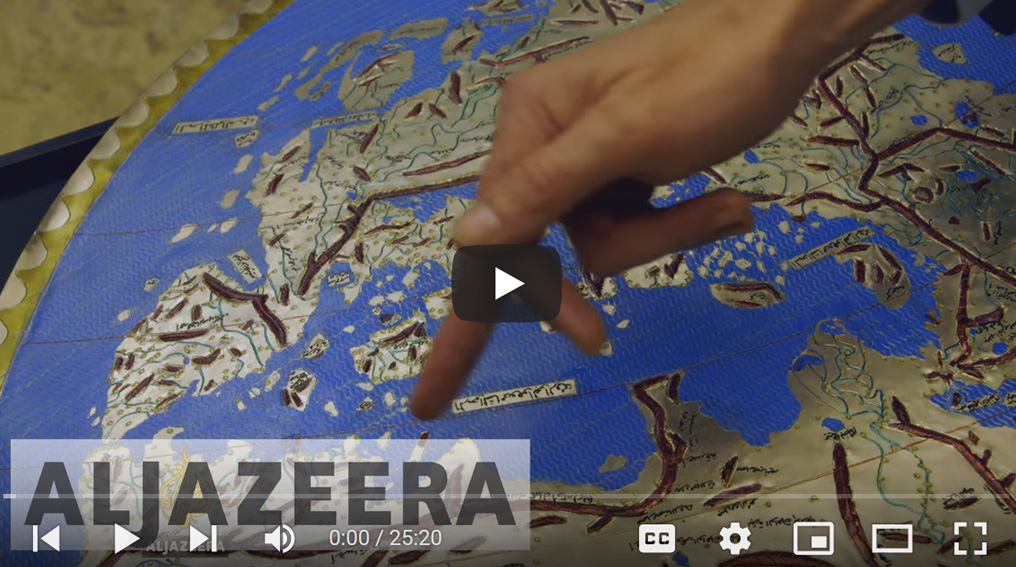Science In A Golden Age
Category: Equality, History, Science
Introduction
 One thousand years ago, the Islamic empire witnessed one of the greatest periods of sustained scientific advancement in history. In the medieval world’s great centres of learning – places like Baghdad, Cairo, Cordoba and Samarkand – discoveries were made, ideas nurtured and methods developed.
One thousand years ago, the Islamic empire witnessed one of the greatest periods of sustained scientific advancement in history. In the medieval world’s great centres of learning – places like Baghdad, Cairo, Cordoba and Samarkand – discoveries were made, ideas nurtured and methods developed.
In Baghdad, for example, we find the very first book on algebra. For a period spanning more than half a millennium, the international language of science was Arabic. And yet, all of these great achievements have been largely forgotten.
The following series of documentaries from Al Jazeera seek to redress that.
Al-Khwarizmi: The Father of Algebra
The word algebra stems from the Arabic word al-jabr, which has its roots in the title of a 9th century manuscript written by the mathematician Al-Khwarizmi.
Al-Khwarizmi’s Kitab al-mukhtasar fi hisab al-jabr wal-muqabala (The Compendious Book on Calculation by Completion and Balancing) was a pioneering piece of work – offering practical answers for land distribution, rules on inheritance and distributing salaries.
In this episode of Science in a Golden Age, theoretical physicist, Jim al-Khalili explores Al-Khwarizmi’s 9th century treatise that also underpins the science of flight and the engineering behind the fastest car in the world.
Astronomy: The Science of the Stars
Jim al-Khalili reveals how scholars from the Islamic world played a crucial role in astronomy and navigation, influencing later astronomers in the renaissance. In this episode he examines ancient maps dating back to the 9th century and see the inner workings of one of the most elaborate astrolabes at the Museum of Islamic Art in Doha.
Optics: The True Nature of Light
Technologies based on light are in use all around us. From art and science to modern technology, the study of light and how behaves and interacts with matter has intrigued scientists. The Kitab al-Manazir (The Book of Optics) was written over 1,000 years ago by the Iraqi scientist Ibn al-Haytham – a pioneering thinker who’s views have been crucial to our understanding of how the universe came into existence.
Al-Razi, Ibn Sina and the Canon of Medicine
In this episode of Science in the Golden Age, theoretical physicist Jim al-Khalili guides us through a journey of discovery where he highlights the links between medical research in the Golden Age of Science during the ninth and 14th centuries and the modern practise of medicine today.
Chemistry: The Search for the Philosopher’s Stone
In this episode of Science in a Golden Age, theoretical physicist Jim al-Khalili leads us on an exploration of just how scholars from the Islamic world, like Jabir Ibn Hayyan and Al-Razi, began the process of transforming the superstition of alchemy into the science of chemistry.
He begins by unpicking the medieval obsession with alchemy – the effort to turn common, less valuable metals into gold. He looks into the work of Jabir Ibn Hayyan, a polymath who grew up in modern-day Iran and who is credited with applying an experimental-based approach to early chemistry.
Pioneers of Engineering: Al-Jazari and the Banu Musa
In this episode of Science in a Golden Age, theoretical physicist, Jim al-Khalili examines the intricate automatic devices from the Islamic world, which paved the way for Europe’s industrial revolution some 800 years later.










